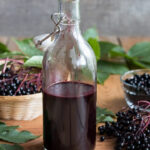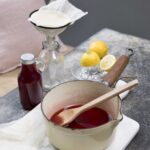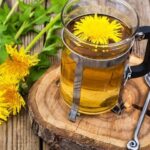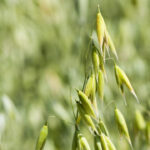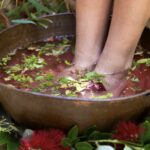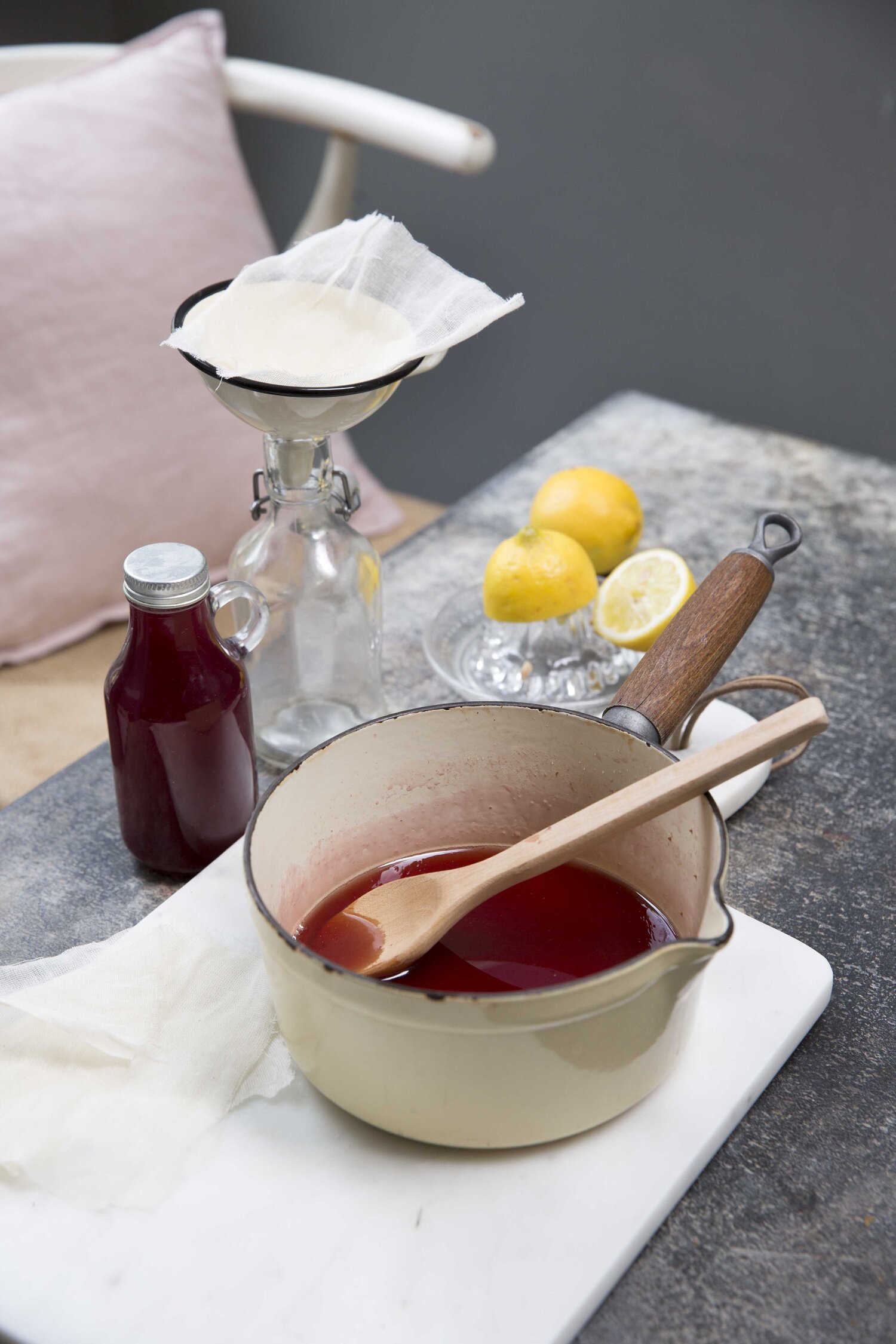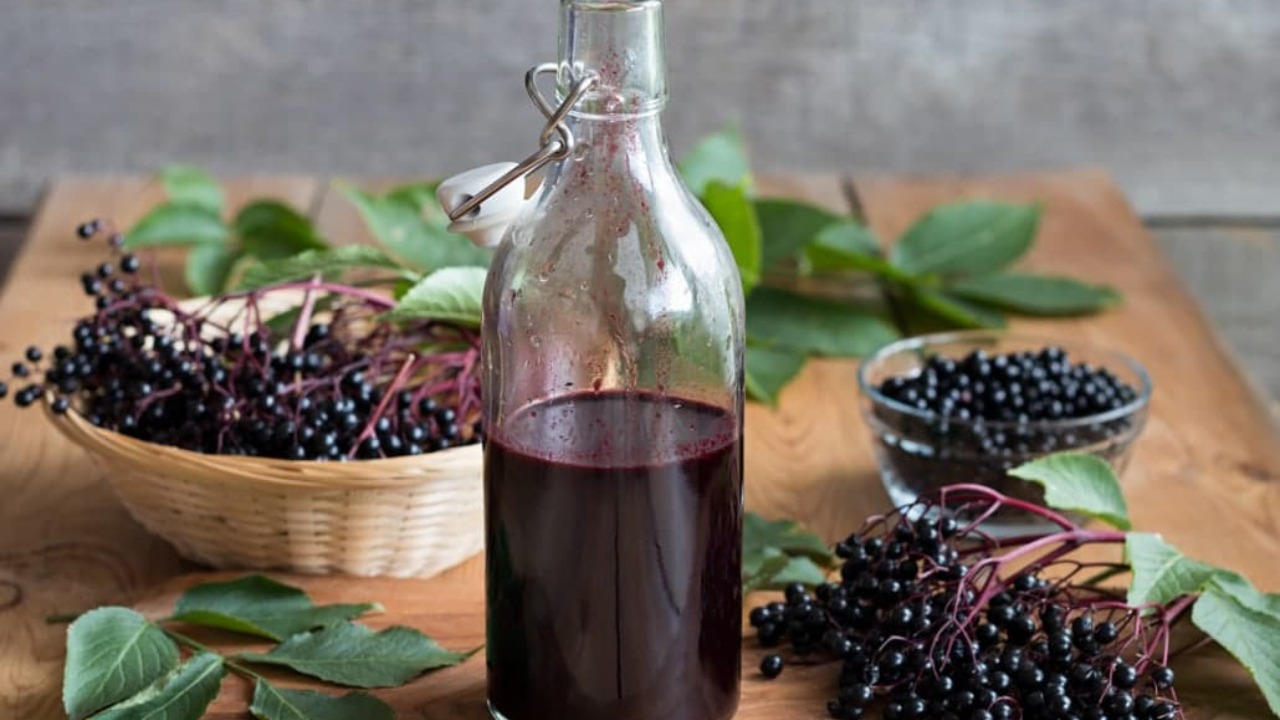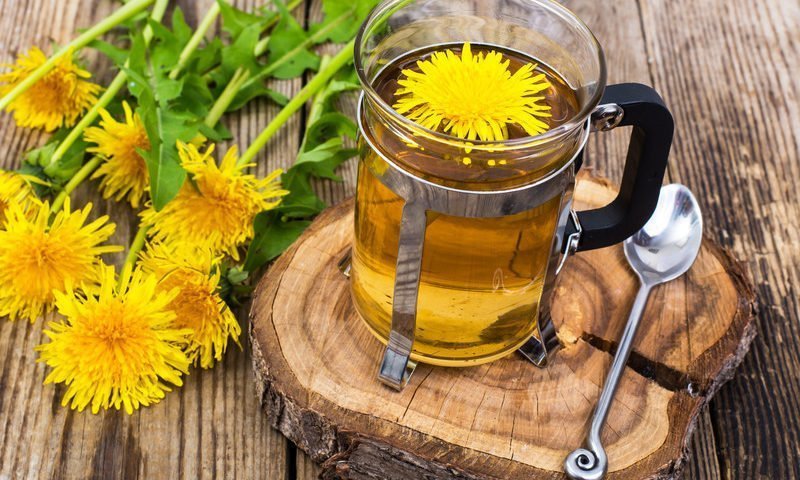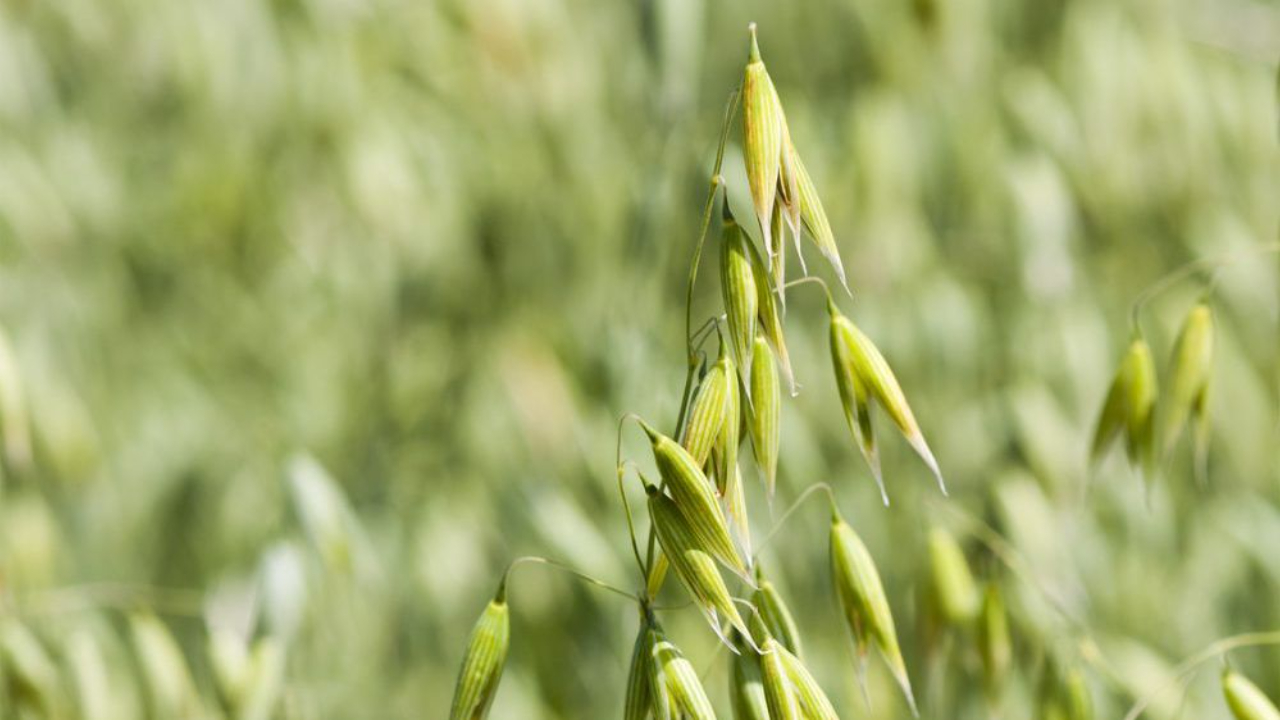Why herbal syrups?
When you need to reach for a soothing cough syrup or something to heal a sore throat, syrups are ideal. The sugar coats the mucous membranes of the throat and chest, attracting water to it to cool inflammation. The sugar also helps to preserve herbs so that you can have some on hand in the first aid cabinet. They also taste great and easier to persuade reluctant patients with.
Sugar? really?
We often get asked about sugar since it hasn’t been a popular ingredient recently due to its addictive qualities and potential to cause tooth decay and other health issues. However, for us we consider it a natural, plant-based ingredient (if you get a good quality one) that has been in medicinal use for thousands of years. We like to use brown, organic cane sugar which also contains some minerals. We very rarely use white sugar – only when the colour of a finished recipe may be important (for instance in elderflower, rose or violet syrup).
Sugar has value in moderation. The above health concerns come from excessive use. In herbal recipes, sugar acts as an excellent preservative and has some medicinal benefits too.
Sugar is humectant (water attracting) and coats tissues nicely to ‘hold’ the herb onto it for longer. E.g. if you drink an infusion for a sore throat, it just gets washed past the throat too quickly.
If we still haven’t persuaded you, you can always check out our herbal honey section.
Basic herbal syrup recipe
This recipe can be used for any type of herbal infusion or decoction and works well for making soothing cough remedies.
- 50g dried or 100g fresh herb
- 600ml water
- unrefined soft brown (light or dark) sugar
First infuse or decoct your chosen herb in the water, as described in the Infusion and Decoction section.
Measure out the strained liquid, then for every 1ml of juice, add 1g of sugar (so for 500 ml of liquid, 500g of sugar) and place both in a pan. Heat gently, stirring until the sugar has dissolved, then simmer gently for 10–20 minutes, stirring gently until thickened into a syrupy consistency. (You can use less sugar, up to half the amount, but it won’t preserve for as long.)
Remove syrup from the heat and leave to cool slightly, then pour into sterilised bottles, seal, label and date.
TIP For extra preservation and to balance out the sweetness of a syrup, you can stir in 1–2 teaspoons of citric acid at the end of the recipe.
SHELF LIFE Keep in a cool, dark place for up to 1 year. Once opened, store in the fridge and use within 2 months.
